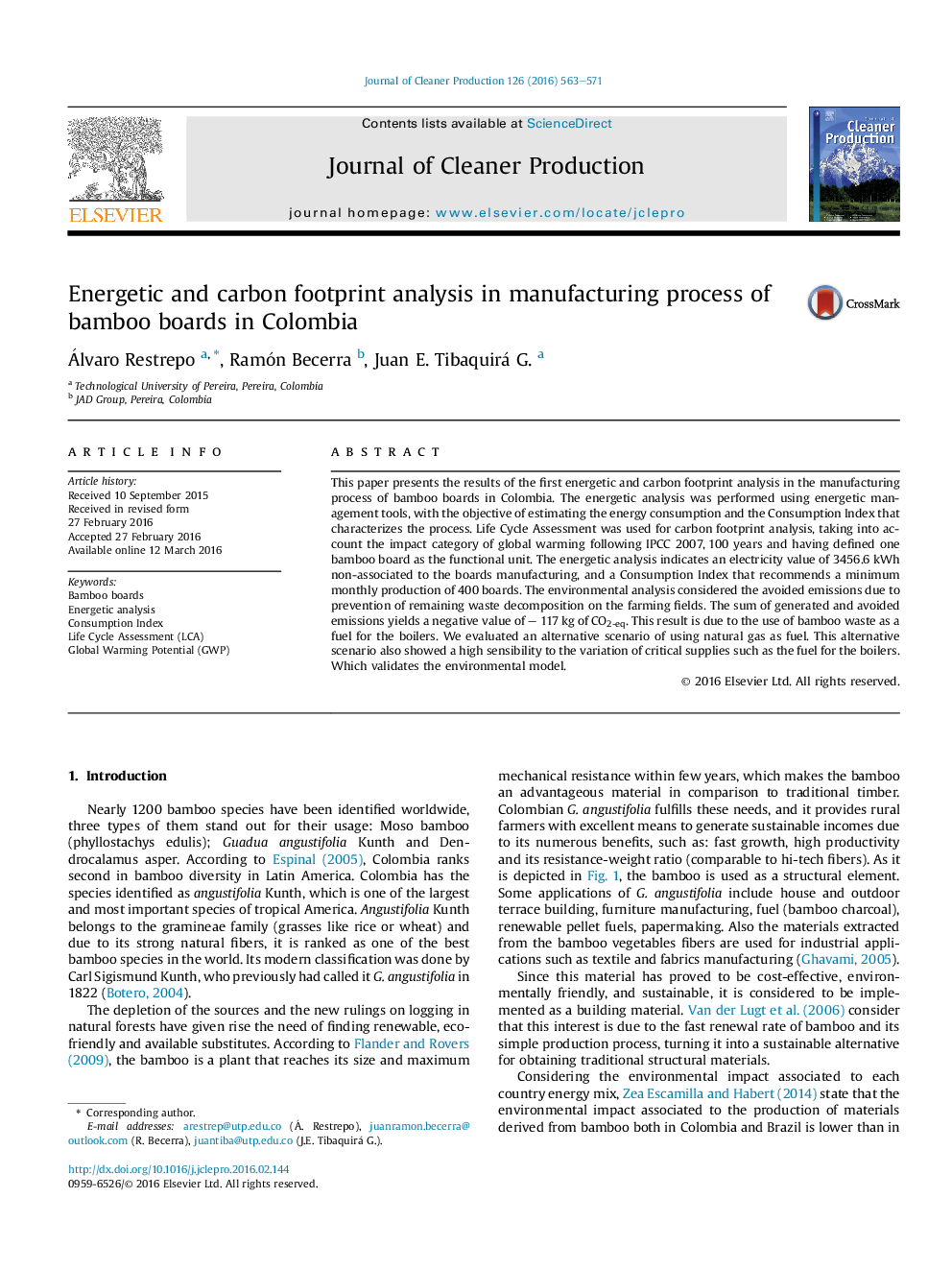| Article ID | Journal | Published Year | Pages | File Type |
|---|---|---|---|---|
| 8102157 | Journal of Cleaner Production | 2016 | 9 Pages |
Abstract
This paper presents the results of the first energetic and carbon footprint analysis in the manufacturing process of bamboo boards in Colombia. The energetic analysis was performed using energetic management tools, with the objective of estimating the energy consumption and the Consumption Index that characterizes the process. Life Cycle Assessment was used for carbon footprint analysis, taking into account the impact category of global warming following IPCC 2007, 100 years and having defined one bamboo board as the functional unit. The energetic analysis indicates an electricity value of 3456.6Â kWh non-associated to the boards manufacturing, and a Consumption Index that recommends a minimum monthly production of 400 boards. The environmental analysis considered the avoided emissions due to prevention of remaining waste decomposition on the farming fields. The sum of generated and avoided emissions yields a negative value of - 117Â kg of CO2-eq. This result is due to the use of bamboo waste as a fuel for the boilers. We evaluated an alternative scenario of using natural gas as fuel. This alternative scenario also showed a high sensibility to the variation of critical supplies such as the fuel for the boilers. Which validates the environmental model.
Related Topics
Physical Sciences and Engineering
Energy
Renewable Energy, Sustainability and the Environment
Authors
Álvaro Restrepo, Ramón Becerra, Juan E. Tibaquirá G.,
